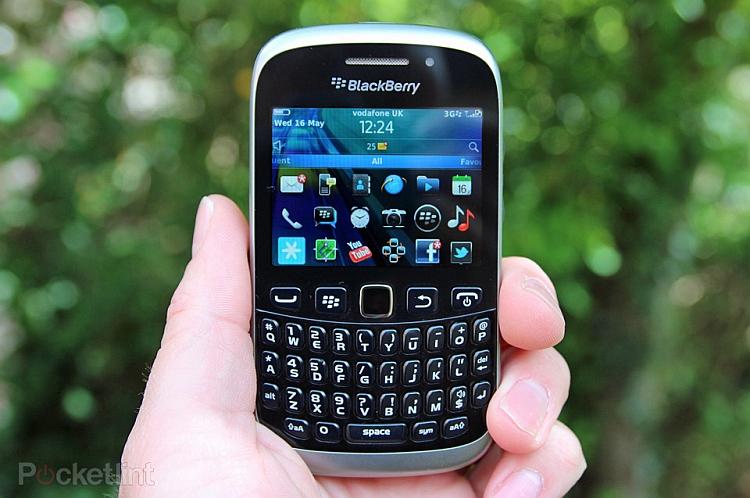
BlackBerry is a subject that I don't touch often anymore. About this time last year, I was pretty ecstatic about the company re-emerging from the stale OS we had grown accustomed to, and instead bring us something a little more modern under the BlackBerry 10 OS. For me, it was a move made by BlackBerry that showed that they still cared about their users, and they wanted to change to better benefit them. BlackBerry was becoming less popular by the minute with their same-old, same-old candybar QWERTY keyboards, so it seemed like something had to give in order for them to pick up the pace with the rest of the platforms on the market. In my opinion, at the time, BlackBerry 10 and the accompanying devices were a good answer for such an issue.
But as I sit here and look at BlackBerry today I'm starting to second guess whether they really should have released BlackBerry 10 or not. It seems to me like they might have been able to hold on to a familiar ledge a little bit longer if they had just waited a little bit longer. It sounds messed up, because even I have said that I wondered if BlackBerry 10 was a little too late to make a difference for BlackBerry at this point (and it was). But the more I think about it, the more sense it seems to make.
BlackBerry 10 didn't have to be what it was. At first glance, it was a pretty big leap; comparing BlackBerry 7 to BlackBerry 10, it was a big leap. However, that "big leap" was just a big leap for BlackBerry - we have seen the exact same song and dance from other platforms already. There isn't a whole lot that BlackBerry 10 can offer that iOS or Android can't offer already. Those are two that you really need to tackle right now. You have to come up with something more unique and more intriguing than Android or iOS. If you can't do that, you're not going to sell. The fact that BlackBerry 10 only managed to lose more people than they gained proved that they weren't able to do that.
It wasn't just the platform itself that was uninteresting, it's also the lack of applications and support. BlackBerry 10 looked to have a good jump start at the beginning with over 100,000 apps before the OS even launched; but then you dig deeper and you find out that 40,000 or more of those applications were somehow miraculously developed by one guy. You have to wonder the credibility of such claims. Since its release, news has been nothing but mum regarding mainstream, important applications to release for BlackBerry 10. If anything else, when you perform a web search on "[favorite application] BlackBerry 10" you're more than likely going to be greeted with A.) a petition for an official application or B.) a way to sideload the application (which is at least better than nothing, but still). For the people in my generation and the kids just entering that "smartphone appropriate" age of their lives, they're going to look for something that has a lot of application support.
But perhaps even moreso, and most importantly for this article, you have the drastic change in the hardware. The BlackBerry Z10 was the first full touchscreen device for BlackBerry 10, and hardware-wise it's pretty solid. It was good of BlackBerry to include the Z10, really. But then you flip the coin and you have the other popular BlackBerry 10 device, the Q10, which still uses BlackBerry's signature candybar QWERTY keyboard layout. Also a good choice, except for the fact that it is sold under a flagship price. It's expensive. It's a nice piece of technology, but BlackBerry's best bet for sales wasn't their higher-end devices - it was cheaper devices like the Curve that had the most consumer support. The cheaper BlackBerry Q5 would have been perfect to replace the Curve. While the BlackBerry Q5 might have been made to be the BlackBerry 10 alternative to the Curve line, it was only ever sold as a full-price (read: not cheap) device here. No specific carrier in the U.S. has been associated with selling the Q5 at a cheap, subsidized price (and as much as I am against them, they still sell rather well).
BlackBerry's neglect to make a truly affordable BlackBerry device first and foremost looks like the culprit to their quick descent in my opinion. They did their best to push the premium quality devices with high price tags like the Z10, the Q10 and the Z30, but when it comes to smartphones, if you're not Samsung or Apple you're going to need to lay all of your options out on the table to make the most of it. That includes the people who would like to purchase a device that's less than $100, even $50. If they had just released the Q5, which to me is very relative to the Curve line using their older OS, at the same time as the Z10 or Q5 I think they could have at least made a few more bucks off of it.
And that's where I'm starting to wonder if BlackBerry should have even changed at all. They either should have waited until they had something truly remarkable that people absolutely couldn't wait to get their hands on, or they should have swallowed their pride and offered some lower-priced devices from the get-go. But that's just my thoughts.
What do you think BlackBerry should have done? Do you think they needed to at least attempt launching BlackBerry 10 when they did? Do you think BlackBerry 10 could have done better if BlackBerry released a cheaper device from the start? Or do you think they should have just continued on with their old OS until they had something better to release? Let us know your thoughts and opinions in the comments below!
Images via Pocketlint, 3g